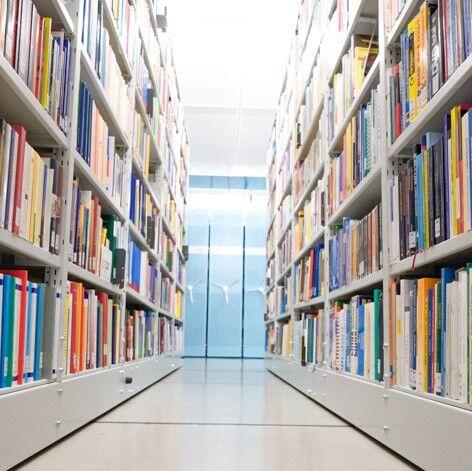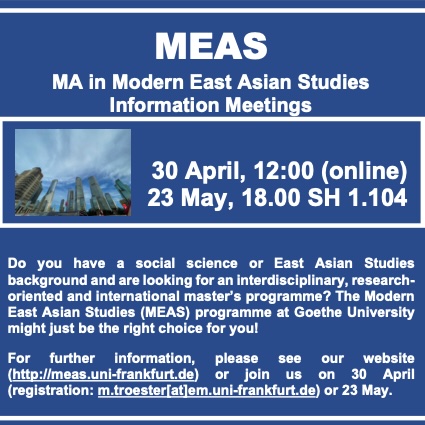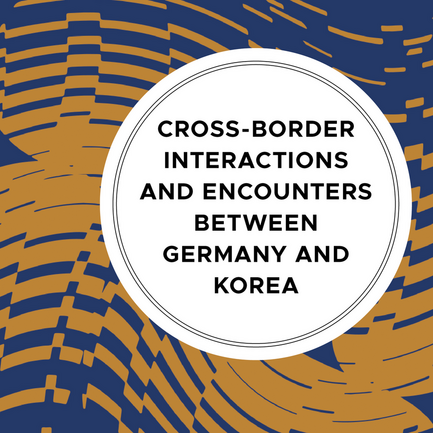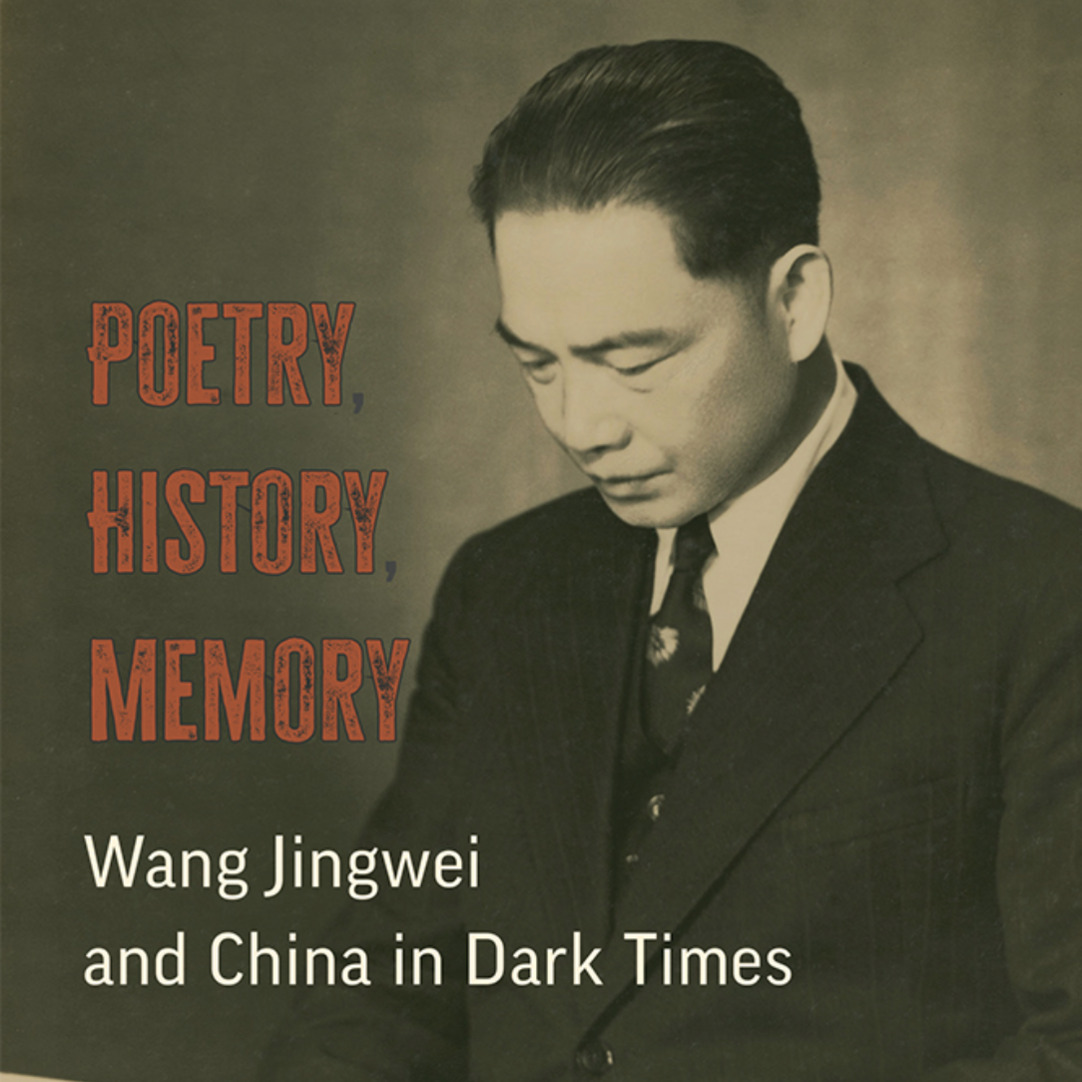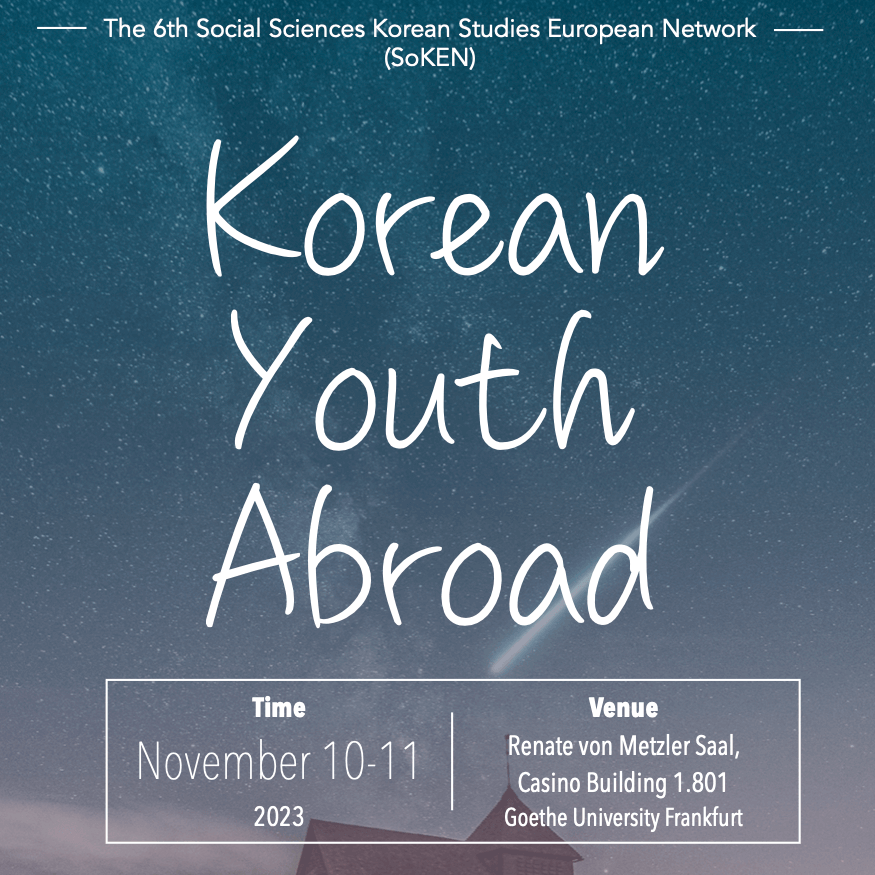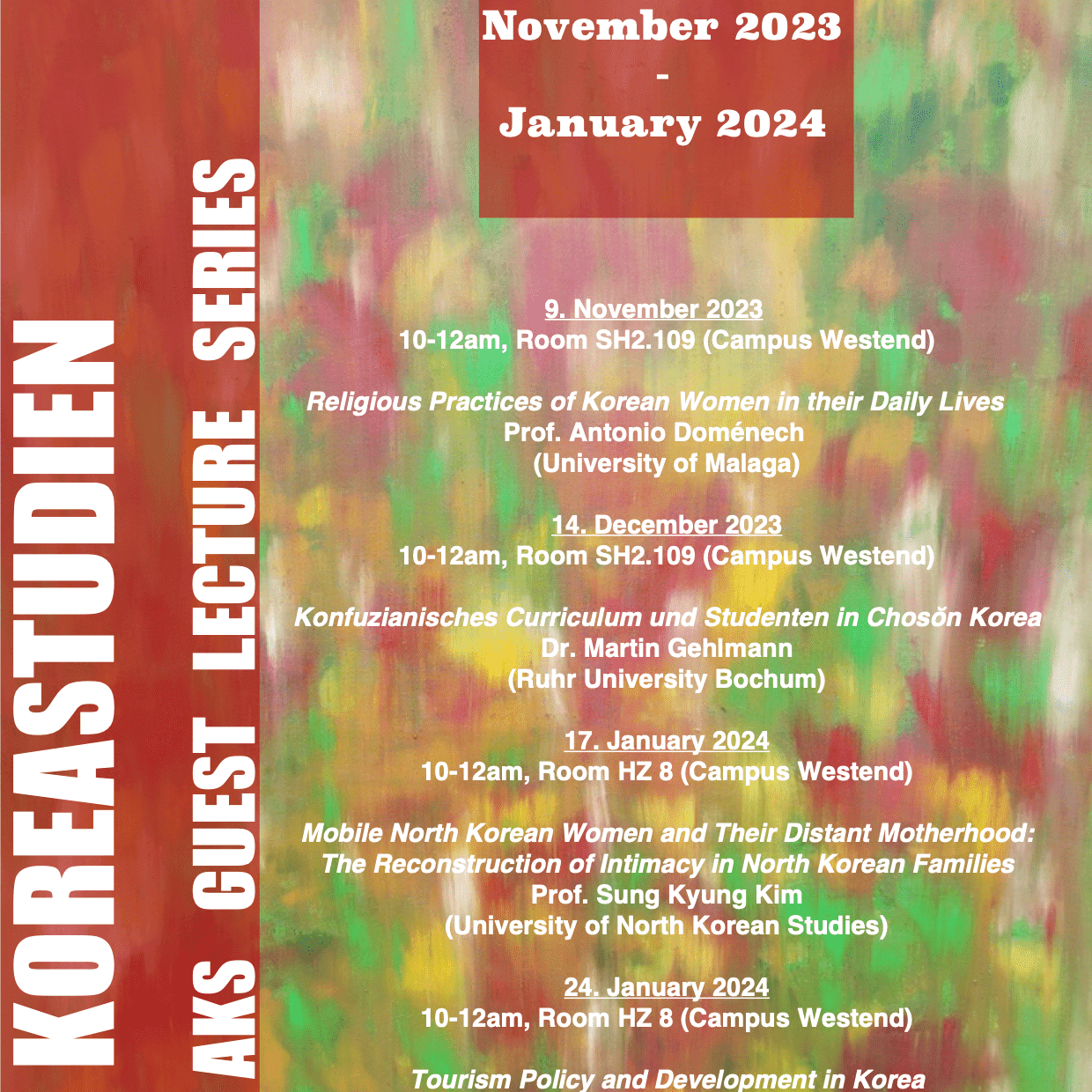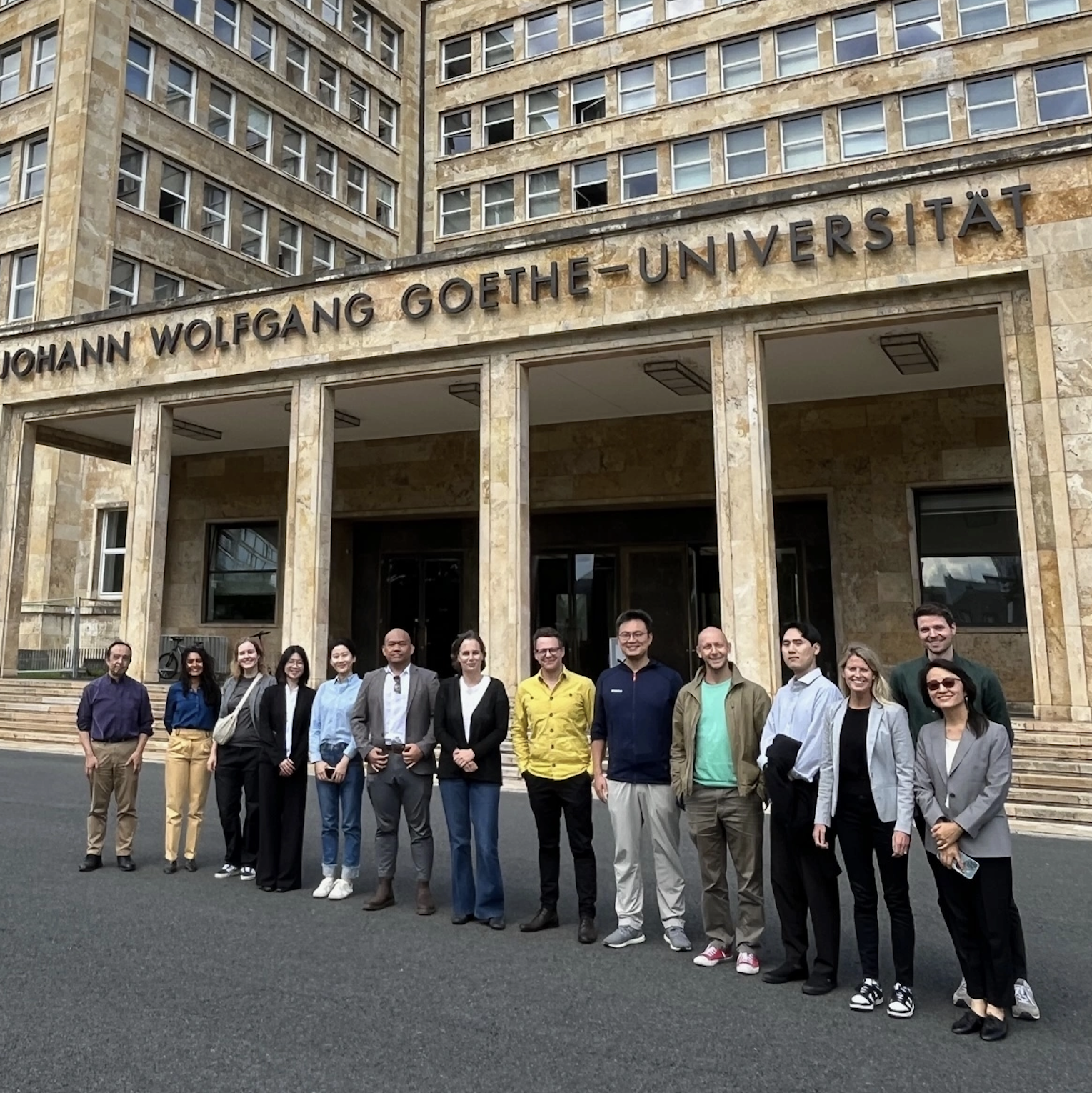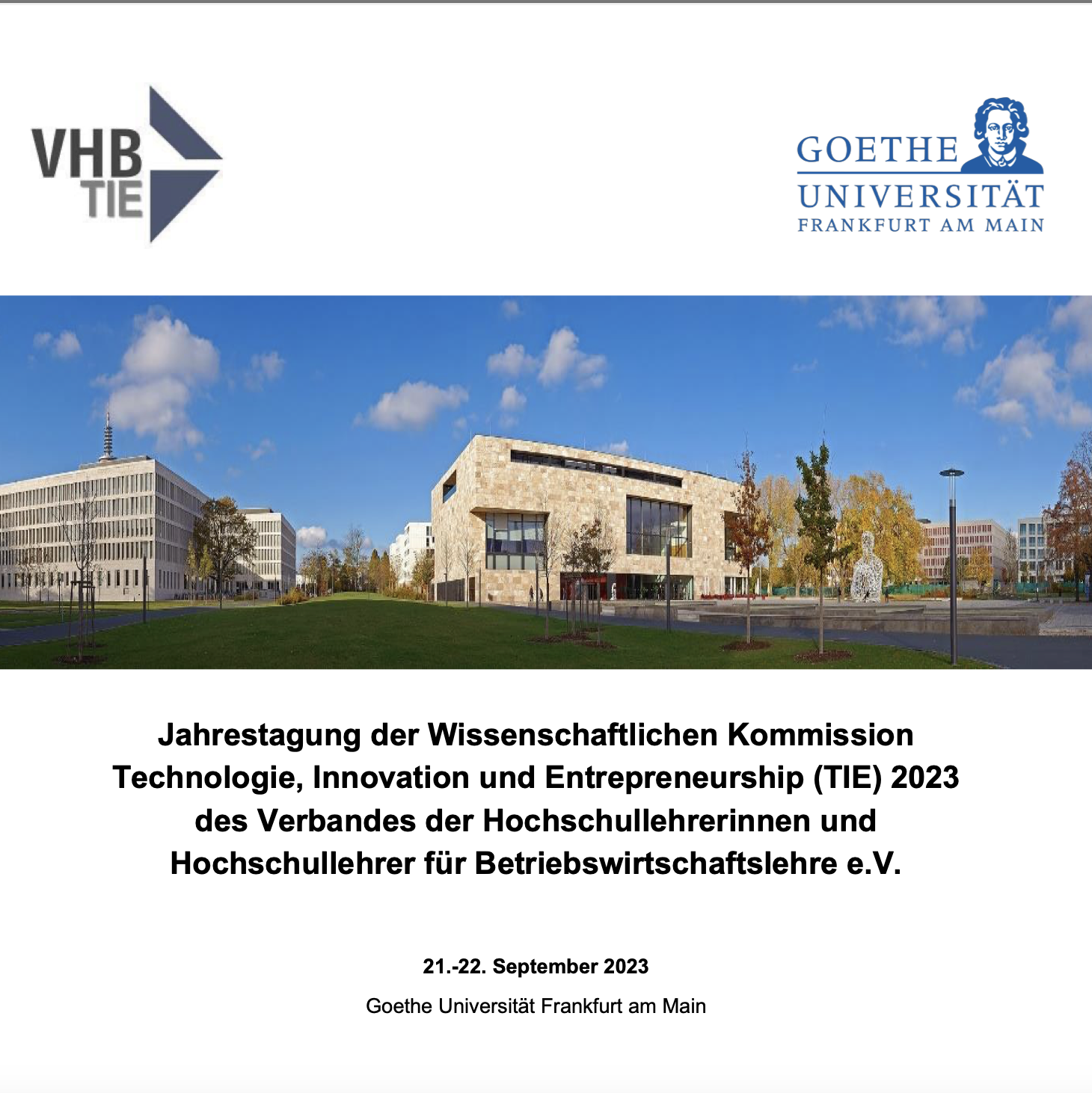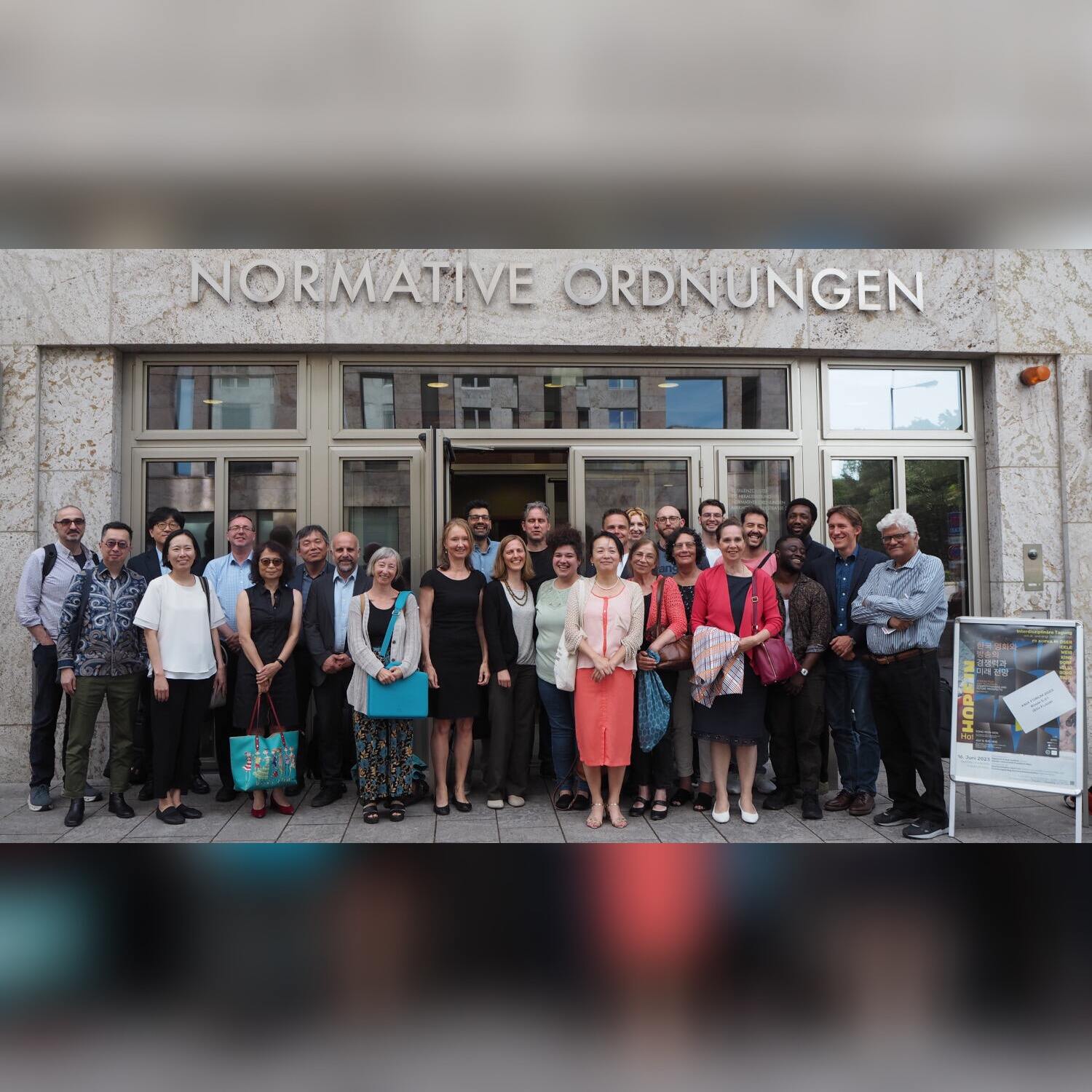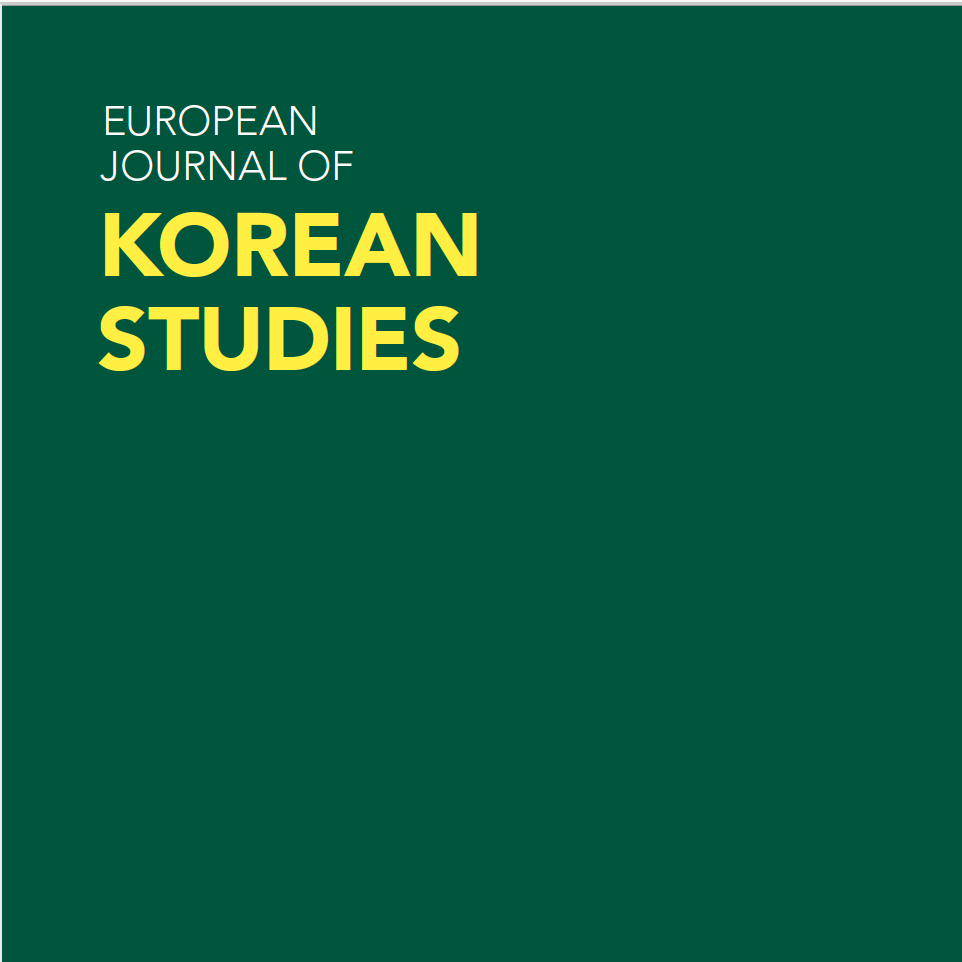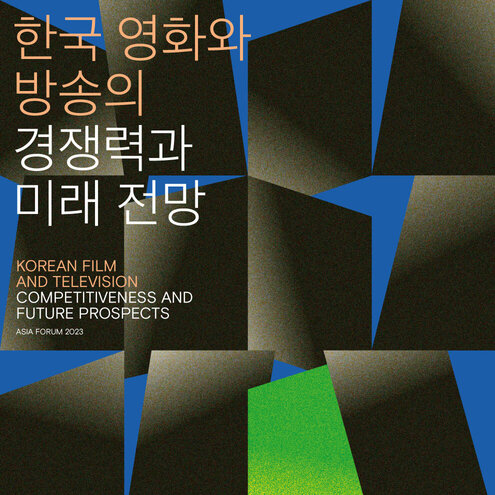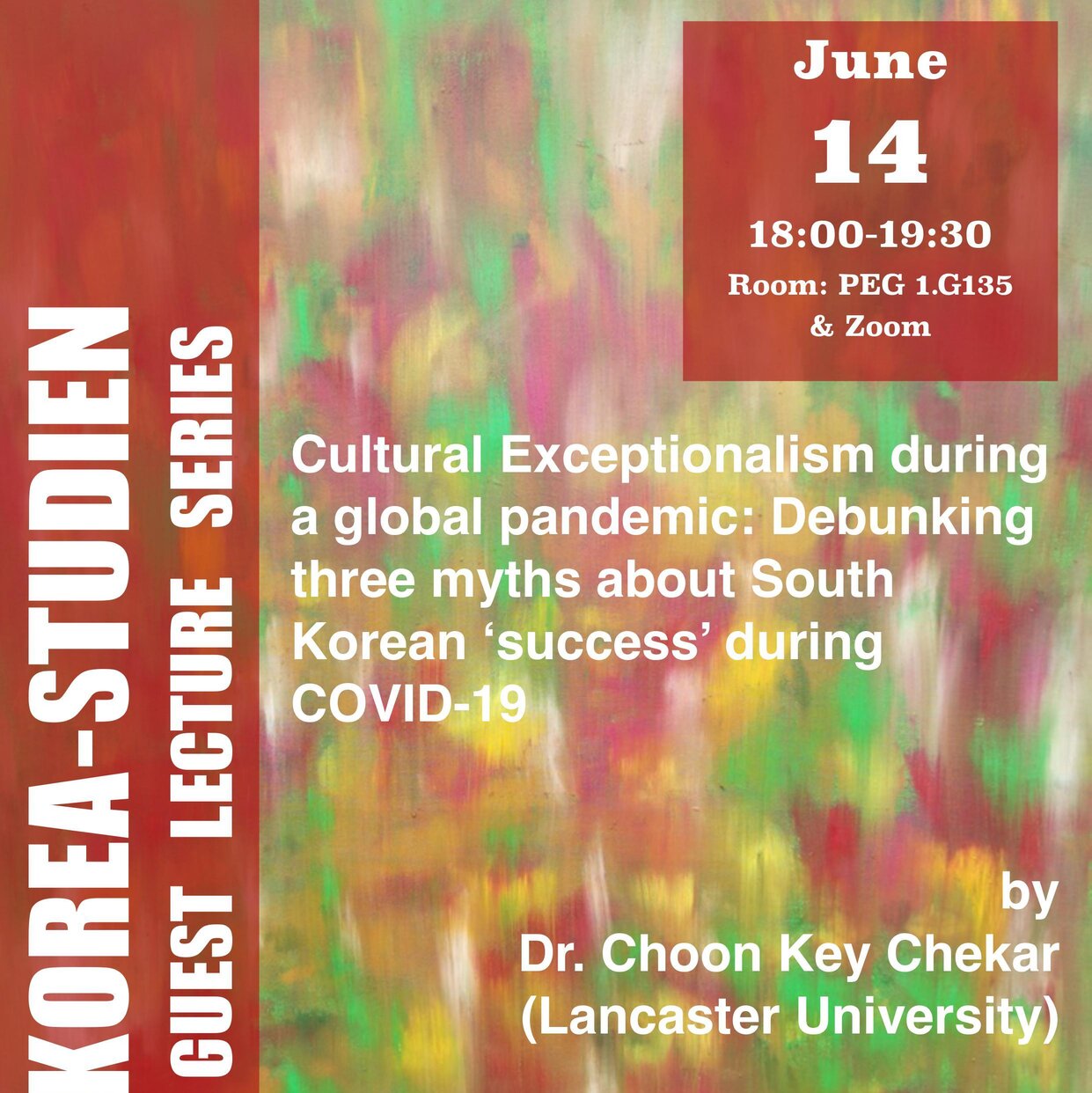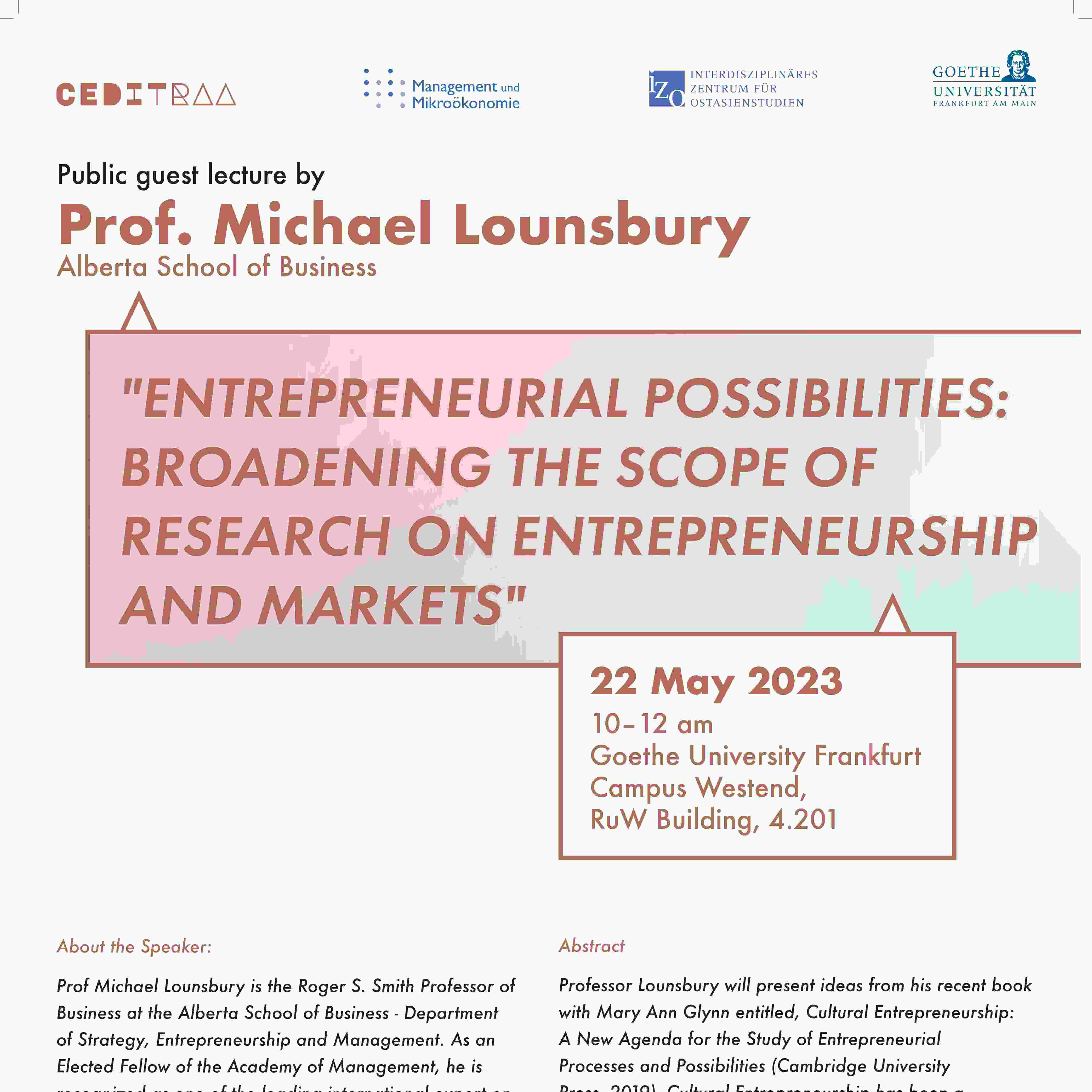News

on IZO events and publications.
on IZO events and publications.

on IZO events and publications.
on IZO events and publications.
Search for all News
IZO Events
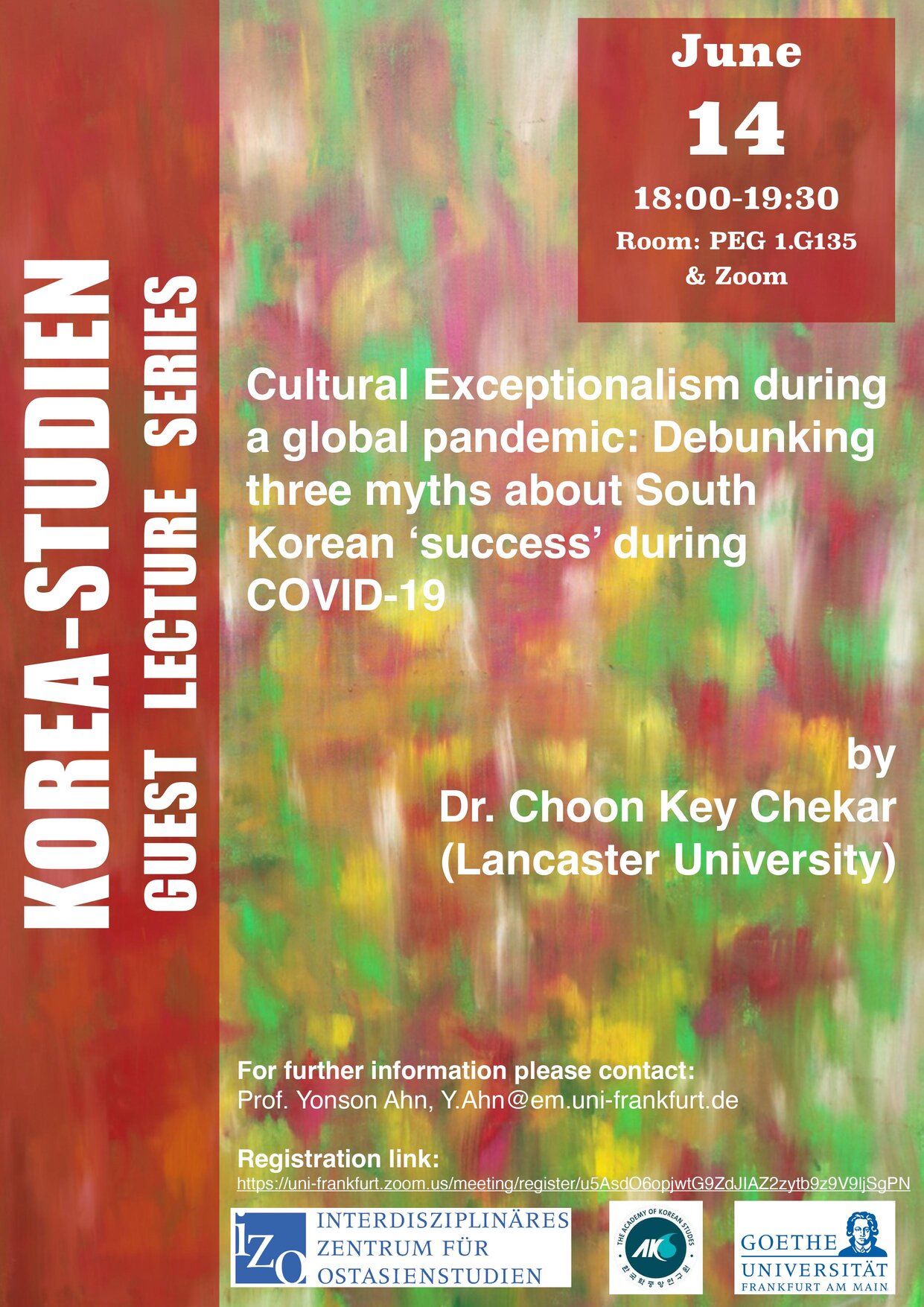
The lecture, titled "Covid Exceptionalism: Debunking Three Myths about South Korean 'Success' During the Covid-19 Pandemic", will take place at Campus Westend (PEG1.G135) as well as online via ZOOM (ZOOM registration link).
Dr. Choon Key Chekar, a Senior Research Associate at Lancaster Medical School, Lancaster University, explores South Korea's public healthpolicy related to COVID. COVID-19 has presented challenges across the globe that led to several shared lessons to be learned. Yet, we have been inundated with accounts that characterise national pandemic responses as inherent and unique to certain countries, which led to COVID-exceptionalism. This lecture challenges myths of South Korea's “successful" responses to the COVID-19 crisis. This lecture discusses what might have been the disadvantages of the cultural exceptionalism rhetoric in public health policy. COVID-exceptionalism may have not only reinforced existing “(East) Asian" and “Western" stereotypes, but also caused other problems such as implicitly granting political impunity to those responsible for coordinating COVID-19 responses.
For further information please contact: Prof. Yonson Ahn, Y.Ahn[at]em.uni-frankfurt.de
IZO Events
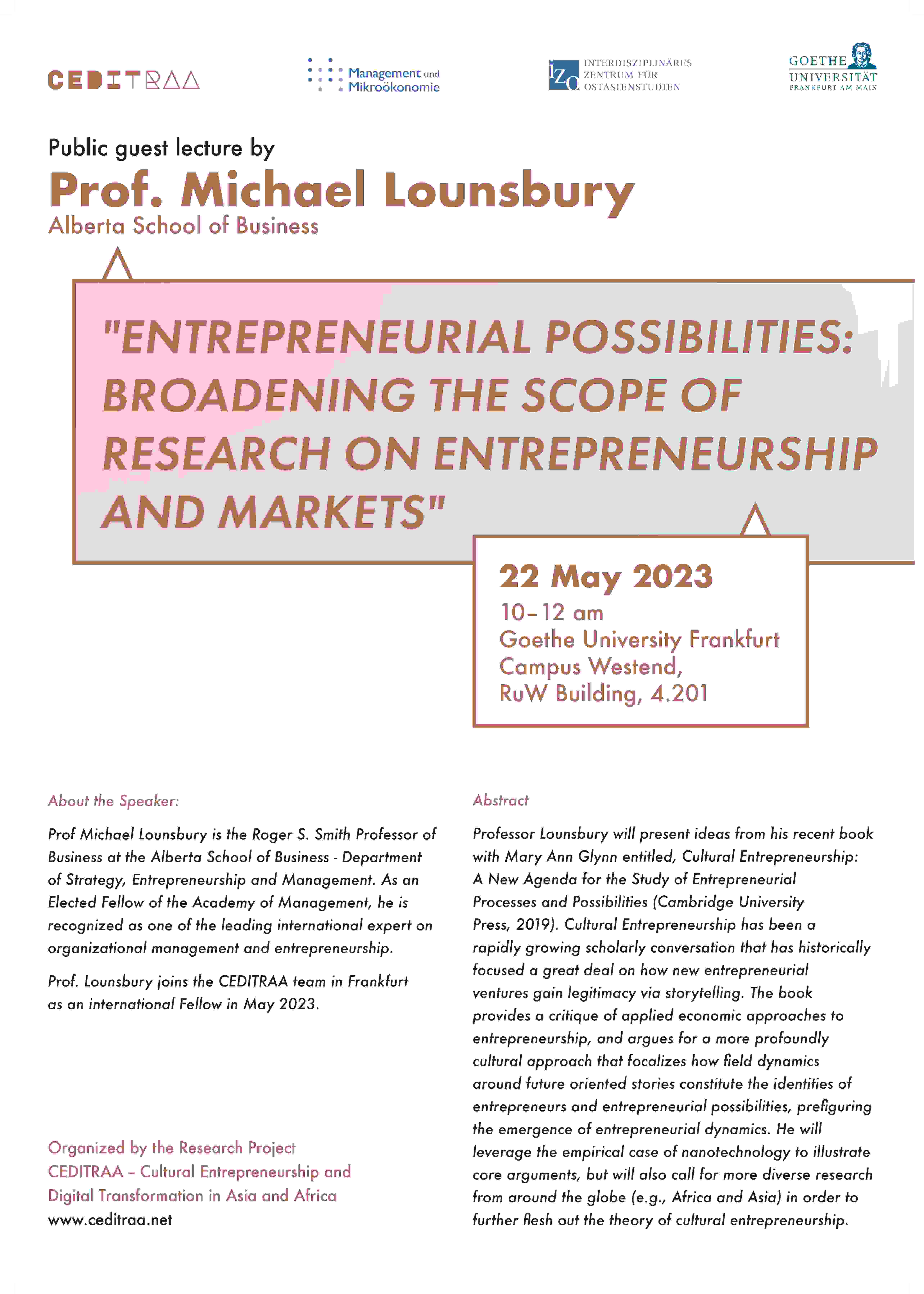
Professor Lounsbury will present ideas from his recent book with Mary Ann Glynn entitled "Cultural Entrepreneurship: A New Agenda for the Study of Entrepreneurial Processes and Possibilities" (Cambridge University Press, 2019). Cultural Entrepreneurship has been a rapidly growing scholarly conversation that has historically focused a great deal on how new entrepreneurial ventures gain legitimacy via storytelling. The book provides a critique of applied economic approaches to entrepreneurship, and argues for a more profoundly cultural approach that focalizes how field dynamics around future oriented stories constitute the identities of entrepreneurs and entrepreneurial possibilities, prefiguring the emergence of entrepreneurial dynamics. He will leverage the empirical case of nanotechnology to illustrate core arguments, but will also call for more diverse research from around the globe (e.g., Africa and Asia) in order to further flesh out the theory of cultural entrepreneurship.
IZO Events

The book talk will take place on 10 May 2023 (6 pm - 7.30 pm) at Campus Westend (PEG 1.135) as well as online via ZOOM The anthology "Korea and the Global Society" (editor: Yonson Ahn) was published by Routledge in February 2023. It covers various fields and disciplines around the theme of South Korea's engagement and exchange with the global society, with a focus on development cooperation, migration and media. The volume focuses on an analysis of South Korea's engagement and reciprocity in the global society, which has evolved from the country's transformation from a recipient of aid and a sender of migrants to a provider of aid and a recipient of migrants
The following two chapters will be presented at this book talk:
"Ex-Periphery: South Korea's Position vis-à-vis the Global Society" (Irina Lyan, Hebrew University of Jerusalem)
"Negotiating Masculinity: Migrant Husbands and Cross-Border 'Marrying-Up'" (Seonok Lee, University of Groningen)
For further information please contact: Prof. Yonson Ahn, Y.Ahn@em.uni-frankfurt.de
IZO Events
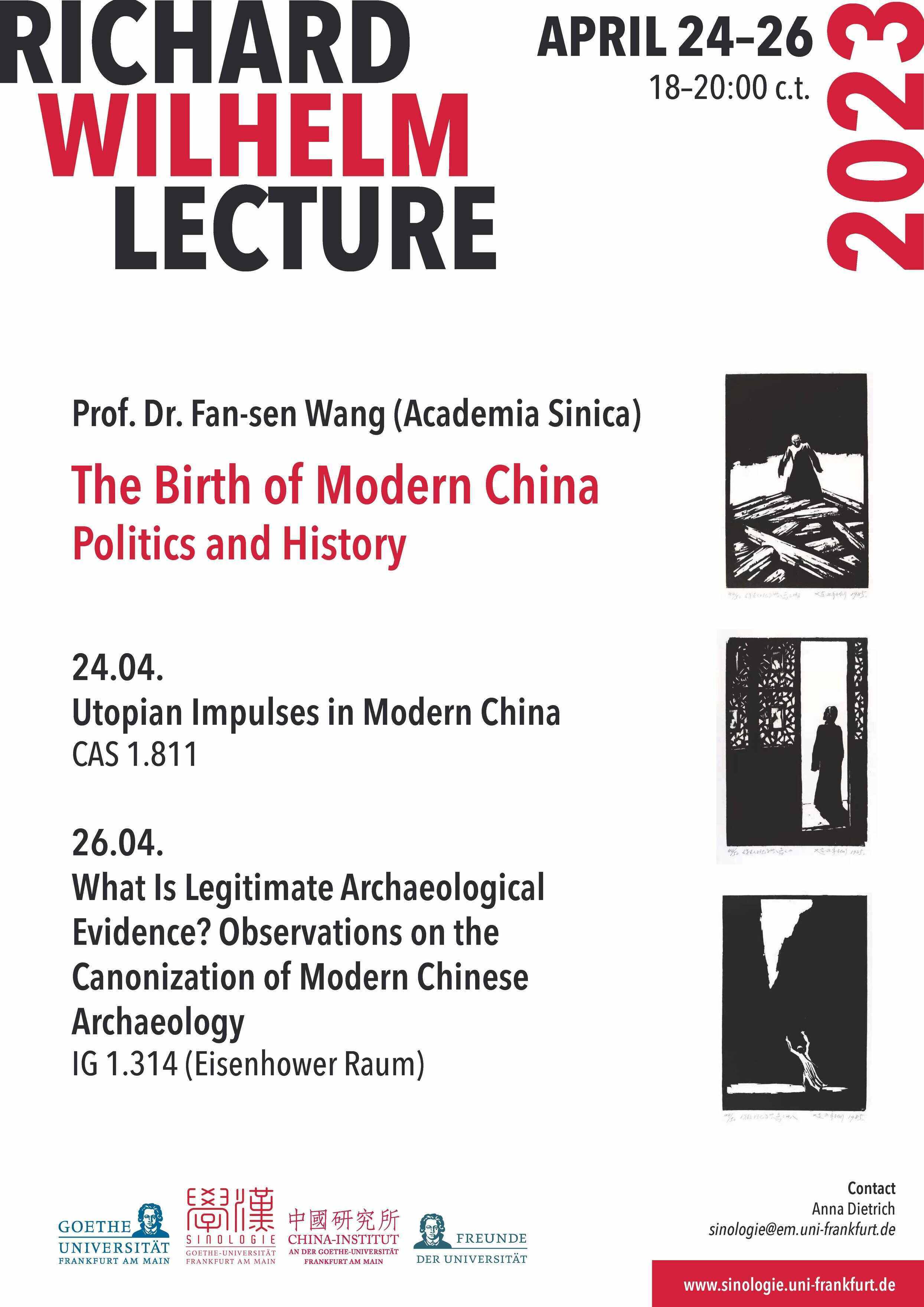
The lectures will take place on 24 April 2023 and on 26 April 2023 from 6 pm at Campus Westend and are open to all interested parties. Prior registration is not necessary.
/24 April 2023, 18–20:00 c.t., CAS 1.811/
UTOPIAN IMPULSES IN MODERN CHINA
This lecture seeks to conceptualize a major shift in Chinese utopian thought with the division of backward-looking and forward-looking utopias. In the wake of the 1898 Reform Movement, a new utopianism that envisioned the destruction of existing social bonds took shape in the /Datongshu/ by Kang Youwei (1858–1927). Inspired by the novel concept of evolution, Kang's utopianism was future-oriented, as he assumed that material and scientific progress could only be achieved by abolishing the Three Bond and Five Relations defined in the Confucian Classics. His idea was a radical break from the traditional Chinese utopian thoughts that were based on ideals to return to ancient morality, as exemplified by stories of “hungry country"—a novelistic utopia where people could withstand poverty and hunger but remain moral—that were popular in the Qing Dynasty. Over the course of just seventy or eighty years, the utopia of morality and poverty found in the hungry country stories gave way to the utopia outlined in the /Datongshu/. With a scientistic belief in human agency, the new utopian thinkers imagined that the social world could be broken down into factors and reassembled in their desired manners. Their future-oriented utopianism exerted enormous influence on modern Chinese reformists and revolutionaries, including Mao Zedong. My categorization not only captures the conceptual transformation from traditional to modern China, but also complements the existing analyses of utopian thoughts, including Zhang Hao's active and passive utopias, and Jay Winter's major and minor utopias.
WHAT IS LEGITIMATE ARCHAEOLOGICAL EVIDENCE? OBSERVATIONS ON THE CANONIZATION OF MODERN CHINESE ARCHAEOLOGY
Amidst the major transition in views of historical evidence in the 1920s, a new model of archaeological research emerged along with the founding of Division of Archaeology at the Institute of History and Philology. Advocates of this new archaeology, represented by Li Chi and Fu Ssu-nien, contended that a modern and scientific approach to research should be centred upon excavation as a process of comprehensive knowledge, rather than mere collection of ancient texts and artefacts. The new archaeologists were deeply discontent with traditional practices of palaeography and epigraphy, which, according to them, narrowly focused on texts connected to the Confucian classics, paid little attention to material condition of artefacts, and thus failed to achieve a holistic understanding of the past. They also distinguished their project from earlier attempts to reform research on ancient China with Western knowledge, such as Luo Zhenyu and Wang Guowei who employed a method of “twofold evidence" by comparing inscriptions on oracle bones and bronze artefacts with traditional written texts. The new vision of archaeological research was put into practice in the subsequent years after 1928, when the Institute of History and Philology launched the project to excavate the ancient Shang Dynasty capital (Yin Xu) in Anyang, Henan. For modern Chinese researchers, the Yin Xu excavation project defined what could be considered legitimate archaeological evidence, and therefore constituted the canon of modern Chinese archaeology.
About the Speaker
/PROF. WANG FAN-SEN/ is a historian specializing in the cultural-intellectual history of early modern and modern China (circa 1500 to 1930). He has written broadly on Chinese intellectual history in the last few centuries. His most important works include /Chang T'ai-yen and His World/ (1985), /Fu Ssu-nien: A Life in Chinese History and Politics/ (2000), /The Genealogy of Modern Chinese Thought/ (2003), and /The Historian and the Historiography in Modern China/ (2008), among others. He received his PhD from Princeton University in 1992. He has taught at universities throughout Taiwan, including National Taiwan University and National Tsing Hua University. Prof. Wang has been Academician of Academia Sinica since 2004 and served as its Vice President and Acting President. He is currently serving as the Chancellor of Taiwan Comprehensive University System. Prof. Wang Fan-sen has been the recipient of many distinguished domestic and international awards. In 2005, he was elected as Fellow of the Royal Historical Society of the United Kingdom.
MA Modern East Asian Studies
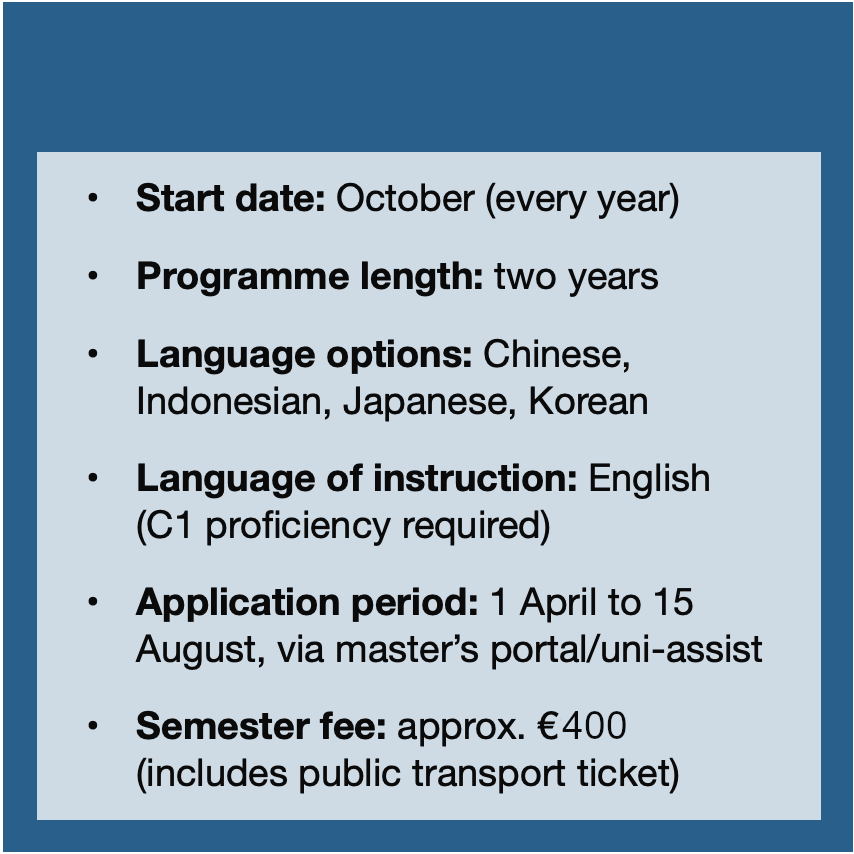
Should you be interested in applying for the programme, check out the Admissions section of the MEAS website. In case of further questions, you can also contact the MEAS programme coordinator, Mirjam Tröster, or register for the online information session on 26 April, 12:00 (CEST) via email. A second information session will be held on campus (Cas. 1.802) on 1 June, 4-6 pm.
Current Research
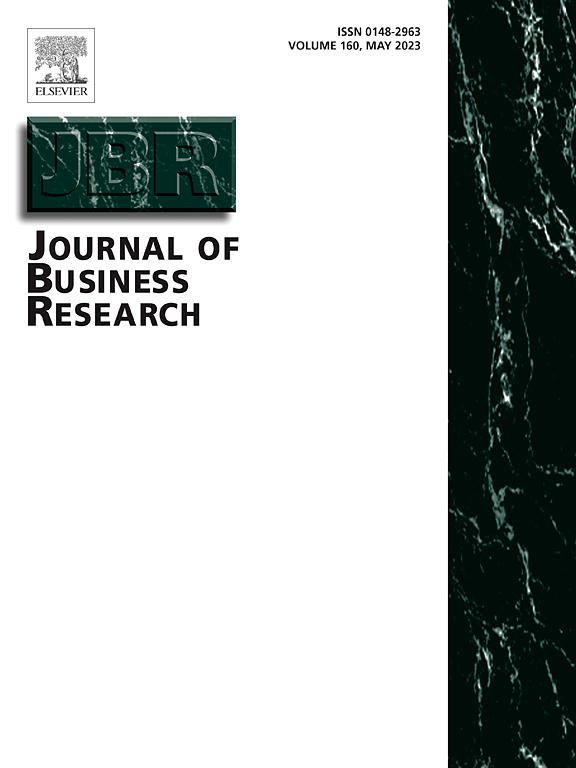
Na Zou, Cornelia Storz, 2023, Journal of Business Research, 161, 113821 [Published Online: 16 March 2023]
Abstract
Why do some entrepreneurs in developing environments thrive whereas others fail, even though they all face the same uncertainties? Prior research on entrepreneurial networks has attributed differences in business performance to variations in network structure. However, many entrepreneurs—such as necessity entrepreneurs—have networks with low structural variation. We show that variations in network content may be an alternative explanation for performance differences. Drawing on the resource-based view, we propose that entrepreneurs whose networks are characterized by low structural variation may benefit from variations in network content—namely, greater resource variety and more resource spanning. Our argument is supported strongly by a random sample of 200 Chinese necessity entrepreneurs working in Shanghai. By bringing network content to the analytical fore, we contribute to research on entrepreneurial networks, which has focused mostly on network structures. We further add to research on necessity entrepreneurship by examining how heterogeneous network content may influence business performance.
Current Research
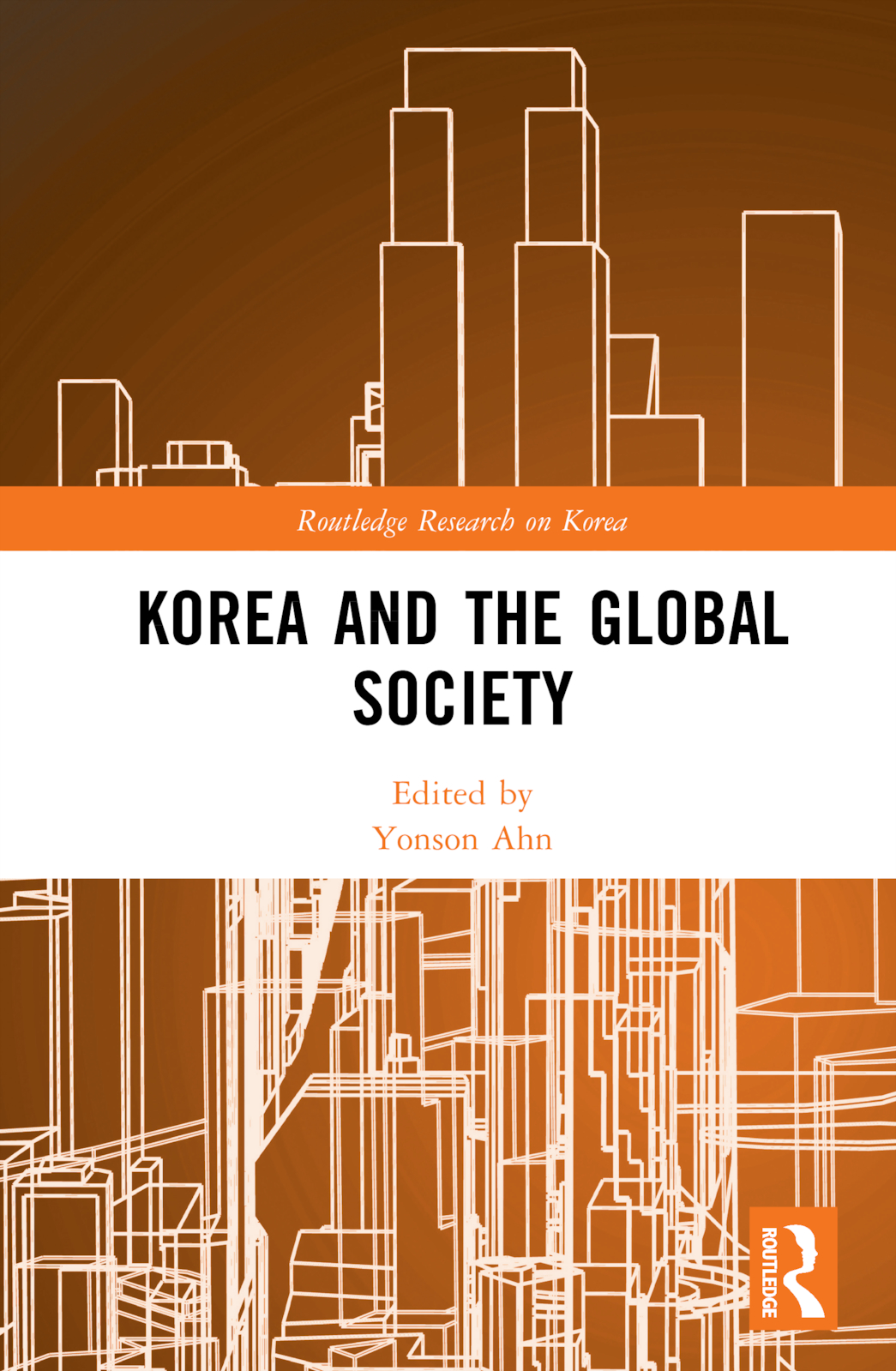
The core of this volume is an analysis of South Korea's engagement and reciprocity in global society that has developed out of the country's shift from aid recipient and migrant sender to aid provider and migrant host. The contributions approach this through the three main aspects of development cooperation, migration, and the media. These themes represent an interdisciplinary array of research that introduces and analyses interconnected and concurrent instances of reciprocity, convergence, tension, inclusion, or exclusion in navigating South Korea's interactional relations with global society, spanning regions and countries including Africa, Asia, the USA, and Germany.
This book is interdisciplinary covering a wide range of disciplines including sociology, gender studies, ethnic studies, media studies, IR, and area studies, in particular Korean studies.
The link to this book: https://www.routledge.com/Korea-and-the-Global-Society/Ahn/p/book/9781032293363#
Current Research

1) New Journal Article by Yonson Ahn on South Korean Im/migrants in South Africa
Yonson Ahn published an article in Korea Journal on 31st December 2022. The topic is 'Migration Trajectories of South Korean Im/migrants in South Africa'. Since the history of this migration destination is relatively recent and on a smaller scale compared to Korean diasporas elsewhere, to date there has been no associated study in the body of Korean diaspora literature. Drawing on in-depth interviews, she maps out the spatial trajectories of migration taken by Korean im/migrants to, from, and within South Africa. Complex issues and motivations that have informed these embodied movements and migration trajectories are explored. This study greatly contributes to the IZO's focus on research on Global East Asia by exploring an under-represented part of Korea/East Asian migration in the Global South whose journeys can be conceptualized within the multi-directional and onward geographic migratory trajectories across Global North-South.
Yonson Ahn “Unending Journeys: Migration Trajectories of Korean Im/migrants in South Africa" Korea Journal, vol. 62, no. 4 (Winter 2022), pp.137-170. doi: 10.25024/kj.2022.62.4.137
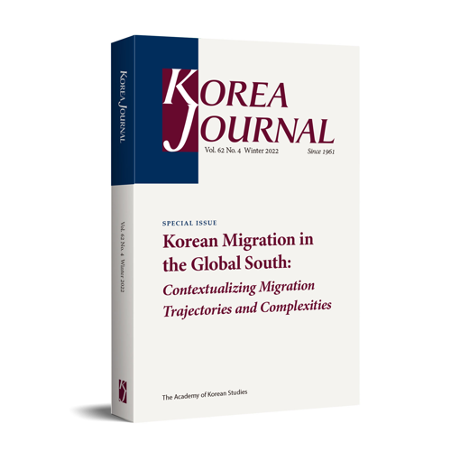
2) Yonson Ahn has published a journal article in an under-researched field on Korean Migration in the Global South.
Yonson Ahn together with Jihye Kim published another article in Korea Journal on 31st December 2022. This study is on South Korean migration in the Global South. Migratory trajectories and complexities in the North to South migration are explored. The authors address complexities in the socio-economic motivations and circumstances within which Korean immigrants operate in the Global South. These complexities can be seen in the opportunities, challenges and risks they encounter. Consequently, those in the South find alternative routes and options and diversify their trajectories with high mobility.
Yonson Ahn and Jihye Kim, “Korean Migration in the Global South: Contextualizing Migration Trajectories and Complexities", Korea Journal, vol. 62, no. 4 (Winter 2022), pp.5-17, doi: 10.25024/kj.2022.62.4.5
IZO Events
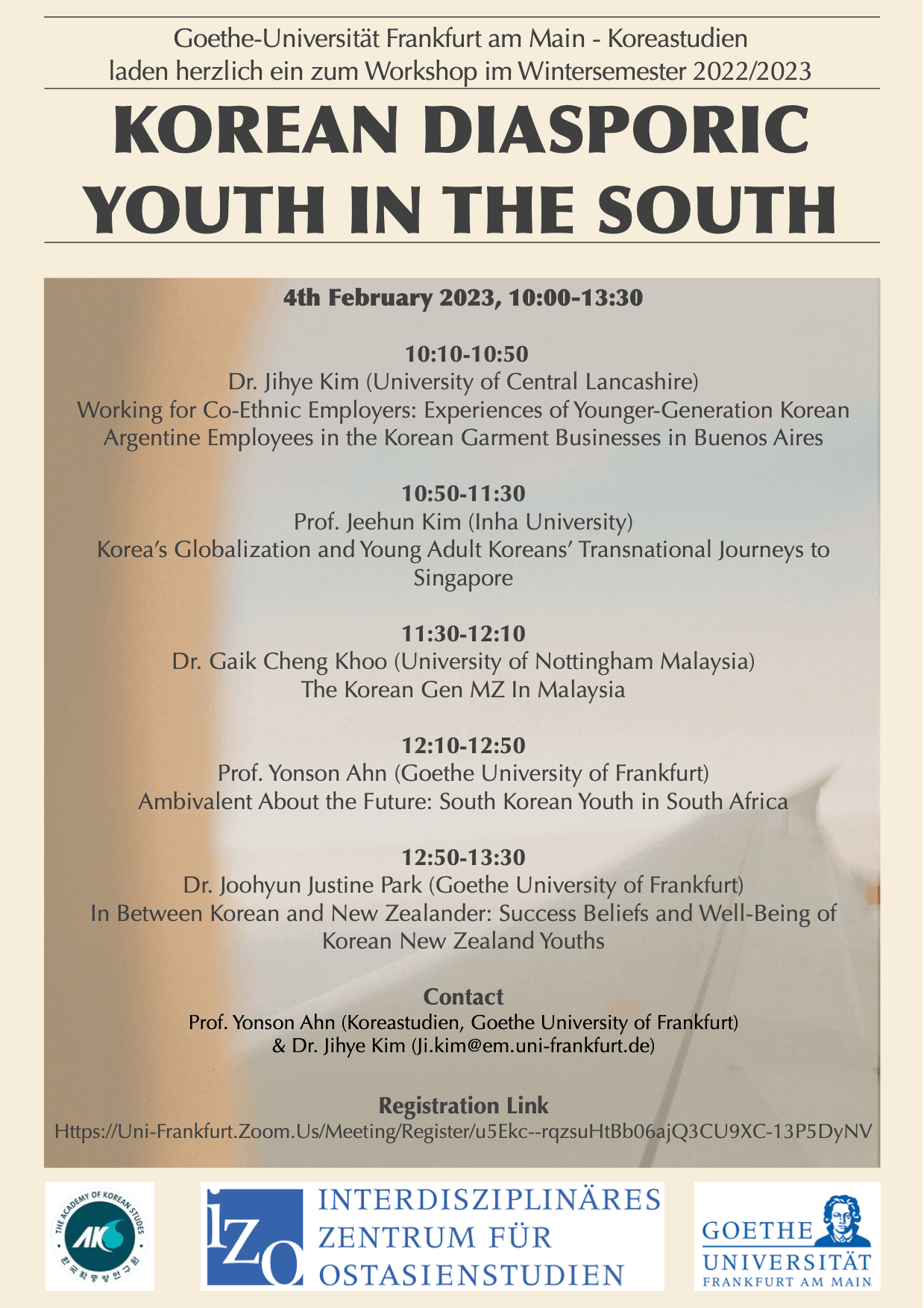
This workshop delves into an under-studied topic of the Korean youth in the South, focusing on the multiple trajectories and complexities of newer-generation Korean im/migrants in the Southern Hemisphere and the Global South. Unlike younger-generation Koreans in the Global North particularly in North America and Europe, who have tended to pursue professional careers and achieved mainstream-oriented mobility, young Korean im/migrants in the Global South have explored different options and followed multiple trajectories beyond the boundaries of their host societies. Hence, this workshop aims to understand how and to what extent these particular circumstances have shaped their lives and experiences of the Korean youth in the South.
You can register for the Zoom link here.
IZO Events
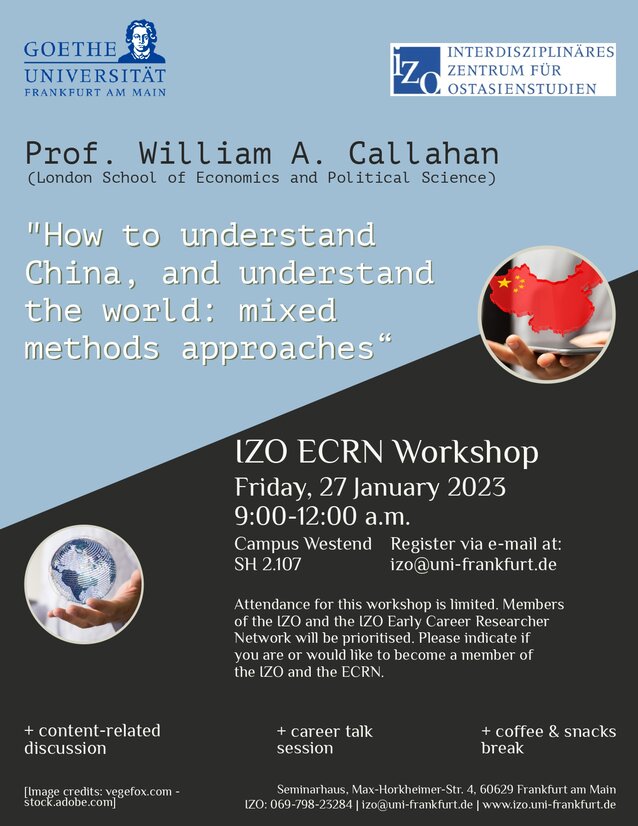
to which you are also cordially invited.
- Studying at Goethe University
- International applicants
- Faculties
- Overview of study programmes
- Programme for refugees
- GRADE
- Goethe Business School (continuing education)
- Research at Goethe University
- Scientific news
- Goethe Welcome Center (for international researchers)
- Collaborative research projects
- Individual research
- Visiting fellowships
- Endowed chairs
- About the University
- News-in-brief
- University administration
- Campus locations
- Campus life
- University archives (German)
- Rhine-Main-Universities

